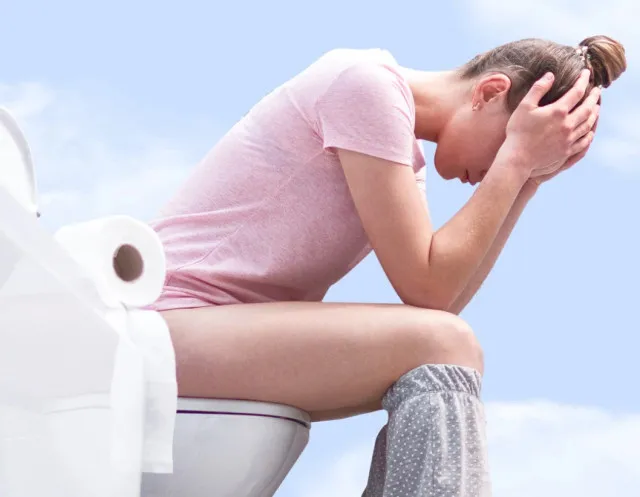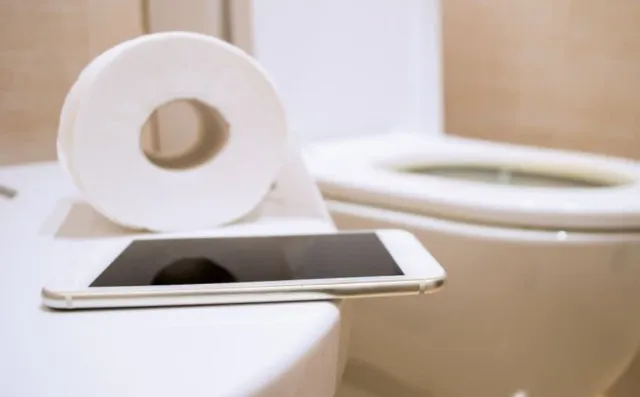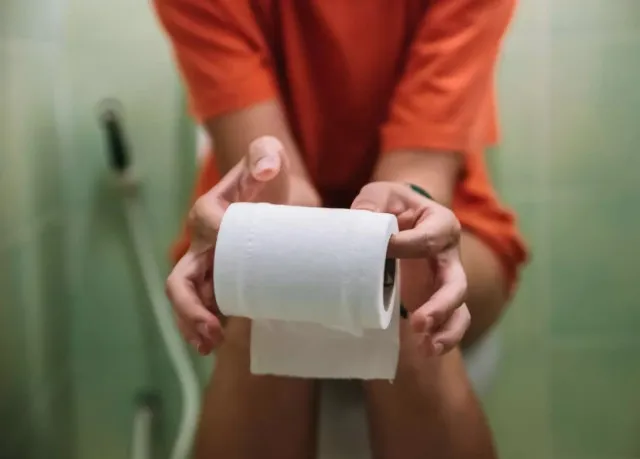Let’s be honest—many of us use toilet time as a chance to scroll through our phones, catch up on emails, or even read a few pages of a book. It feels like a mini break from life, right? But according to medical experts, spending more than 10 minutes on the toilet could be doing more harm than you realize. Bowel surgeons and colorectal specialists have been raising awareness about the dangers of prolonged toilet sitting, and the potential health risks might surprise you. Let’s dig into why keeping your bathroom visits short and sweet is better for your health.
The Health Risks of Sitting on the Toilet for Too Long

At first glance, sitting on the toilet for an extended period might seem harmless. After all, you’re just sitting—what could go wrong? As it turns out, quite a lot.
Increased Pressure on Your Body
When you sit on the toilet, especially in a hunched-over position, the pressure on the veins around your anus increases. This pressure can cause blood to pool in the area, making it harder for blood to flow back. Over time, this can lead to swollen and painful veins, also known as hemorrhoids.
Dr. Lai Xue, a colorectal surgeon from the University of Texas Southwestern Medical Center, describes this phenomenon as a “one-way valve effect.” Blood enters the area but struggles to circulate out efficiently, leading to discomfort and potential complications.
Prolonged Sitting and Other Health Complications
Sitting on the toilet for too long doesn’t just increase the risk of hemorrhoids. It can also lead to other serious health issues, including:
- Weak Pelvic Floor Muscles: Straining during bowel movements can weaken the muscles that support your bladder and bowel control. This can result in long-term problems like rectal prolapse, where the rectum begins to protrude through the anus. Not pleasant!
- Warning Signs of Colon Cancer: Prolonged toilet sitting may also be a sign that something is wrong with your bowel movements. Struggling to pass stool, noticing blood in your stool, or experiencing frequent constipation could indicate underlying health issues, including colon cancer.
If you’ve noticed changes in your bowel habits or unexplained discomfort, it’s always a good idea to consult a healthcare professional.
The Alarming Rise in Colon Cancer Cases Among Young Adults
In recent years, doctors have observed a worrying trend: an increase in cases of colon cancer among younger adults, particularly those under the age of 50. Oncologist Dr. Shivan Sivakumar from the University of Birmingham has described this rise as an “epidemic.” While the exact cause is unknown, factors such as unhealthy diets, sedentary lifestyles, and rising obesity rates may contribute to this alarming trend.
Dr. Lance Uradomo, a gastroenterologist, has also pointed out that younger patients are increasingly presenting with symptoms like hemorrhoids, constipation, and even large growths in the colon that block stool flow. This emphasizes the importance of awareness, early detection, and preventive care.
Signs You Might Be Spending Too Long on the Toilet
Still wondering if your bathroom habits are putting your health at risk? Here are some warning signs to watch out for:

- Frequent Hemorrhoids: Experiencing pain, itching, or swelling around the anus regularly? It could be a sign that your toilet habits need adjusting.
- Difficulty Passing Stool: If you find yourself straining during bowel movements or spending more than 10 minutes on the toilet, it might indicate issues like constipation or an underlying health condition.
- Blood in Stool: This is a red flag that shouldn’t be ignored. Blood in your stool could be a sign of hemorrhoids, anal fissures, or something more serious like colon cancer.
- Changes in Bowel Habits: Sudden shifts in how often you go to the bathroom or the consistency of your stool can be a sign that it’s time to speak with a doctor.
Healthy Bathroom Habits to Protect Your Digestive Health
Maintaining good bathroom habits isn’t complicated, but it does require some intentionality. Here are some simple tips to keep your digestive system healthy and prevent unnecessary health risks:
1. Keep Toilet Time Under 10 Minutes
The golden rule is simple: if it’s taking you more than 10 minutes to do your business, there’s likely an issue that needs addressing. Avoid distractions like scrolling on your phone, as this can tempt you to linger.
2. Prioritize a High-Fiber Diet
Fiber is your digestive system’s best friend. Incorporate fiber-rich foods like fruits, vegetables, whole grains, and legumes into your diet to promote regular bowel movements and prevent constipation.

3. Stay Hydrated
Drinking plenty of water helps soften stool and keeps things moving smoothly through your digestive tract. Aim for at least 8 glasses of water a day.
4. Exercise Regularly
Physical activity stimulates the muscles in your intestines, helping to prevent constipation and promote overall gut health. Even a short daily walk can make a difference.
5. Don’t Ignore the Urge to Go
Holding it in can lead to harder stools and make bowel movements more difficult. When you feel the urge to go, don’t delay.
6. Listen to Your Body
If you’re frequently experiencing discomfort, straining, or other symptoms, don’t ignore them. Early intervention can make a big difference, especially if a more serious condition is developing.
The Bigger Picture: Awareness and Prevention
The health risks associated with prolonged toilet sitting highlight the importance of awareness and preventive care. For many young adults, the idea of being at risk for conditions like hemorrhoids or colon cancer might seem far-fetched, but the rising statistics tell a different story.

Experts stress the need for regular check-ups and paying attention to early warning signs. As Dr. Shivan Sivakumar notes, many young people don’t realize they’re at risk, which delays diagnosis and treatment. Taking small steps to maintain your digestive health today can prevent serious issues down the line.
Conclusion: Change Your Bathroom Habits for Better Health
It’s time to rethink how we approach bathroom breaks. While the toilet might feel like the perfect place for a scrolling session, the health risks of prolonged sitting far outweigh the benefits of extra screen time. Limiting your time on the loo to less than 10 minutes, adopting healthy habits like a fiber-rich diet and regular exercise, and paying attention to your body’s signals are all key to protecting your digestive health.
So, the next time you head to the bathroom, keep it short and sweet. Your body—and your future self—will thank you!


